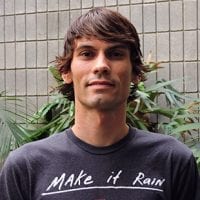
Does endoreduplication mediate organ size compensation in neopolyploid Arabidopsis thaliana?
Project Summary
Endopolyploid cells found in the epidermis of the Arabidopsis thaliana sepal (its outermost floral organ) are products of endoreduplication, a process that increases the ploidy of select cells. In contrast, whole genome duplication (WGD), or polyploidy, refers to an entire organism with genome size uniformly above 2C. We are investigating at the interface between WGD and endoreduplication where these two processes may interact in controlling cell and organ size. LGO (loss of giant cells from organs) is a cyclin-dependent protein kinase inhibitor. Knocking out or mutating LGO is able to reduce endocycling, while overexpression (OX) of LGO increases endocycling and the resultant endopolyploidy. WGD is generally associated with increases in plant size and possibly organ size. Compensation is any change that occurs in cell size or cell number to minimize the effect of a disturbance on organ size. In the abaxial sepals of neoautotetraploid plants induced by colchicine, wild type exhibited a 1.28-fold increase in sepal area and a 1.75-fold increase in average cell size, indicating that compensation had occurred. To compare with wild type, 150 diploid LGO OX plants were treated with colchicine to induce tetraploidy and octoploidy. Eight independent tetraploid lines were identified by flow cytometry. Organ size was measured in these lines and reduced compensation effects over wild type were exhibited, with a 1.55-fold increase in sepal area from diploids to tetraploids and a 3.17-fold increase in average cell size from diploid to tetraploid sepals. This suggests a negative correlation between endoreduplication and compensation effects. Next, lgo-2 lines will be tested.
My Experience
This summer has been amazing. This internship has been around for fifteen years, with new interns arriving each year to grow into scientists. I wonder, has this program, like the storied ship of Theseus, remained fundamentally the same entity, as students and professors move into and out of the Boyce Thompson Institute like the boards of that famous ship? My contention is that so much has changed about the program that this year hardly resembles the first. Still, I have to believe that every year has been a success story. My time here will always remain a vivid and rich time in my life. I have to thank my mentor, Dana Robinson, for being a generous and inspiring source of knowledge and technical skill. The entire Roeder lab welcomed me and showed me how a happy and healthy lab culture serves science. And all the BTI interns are the best!
